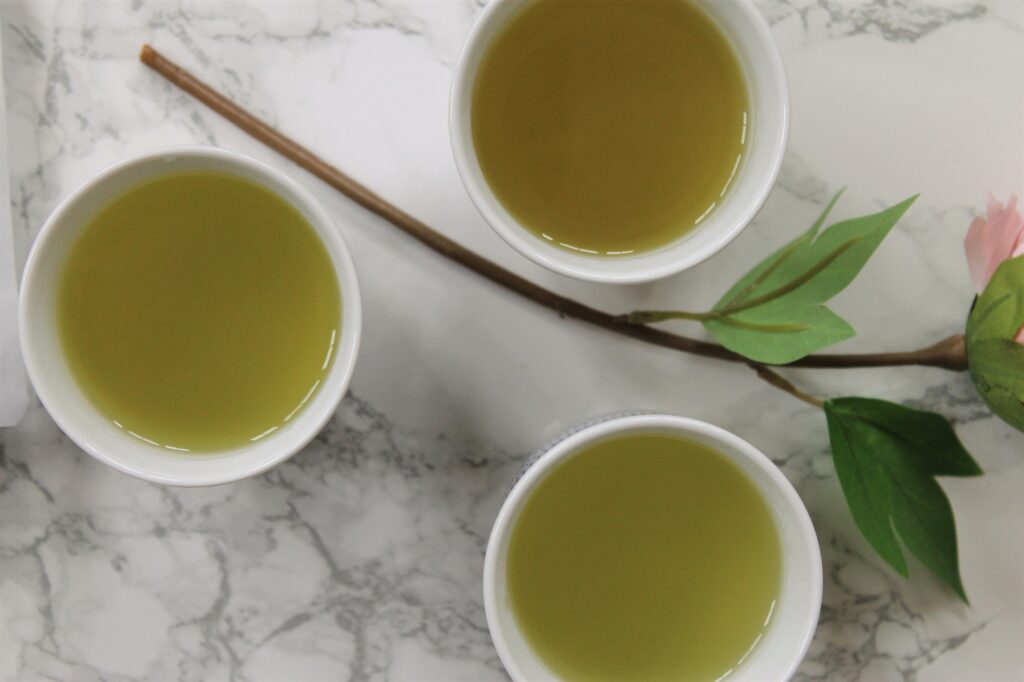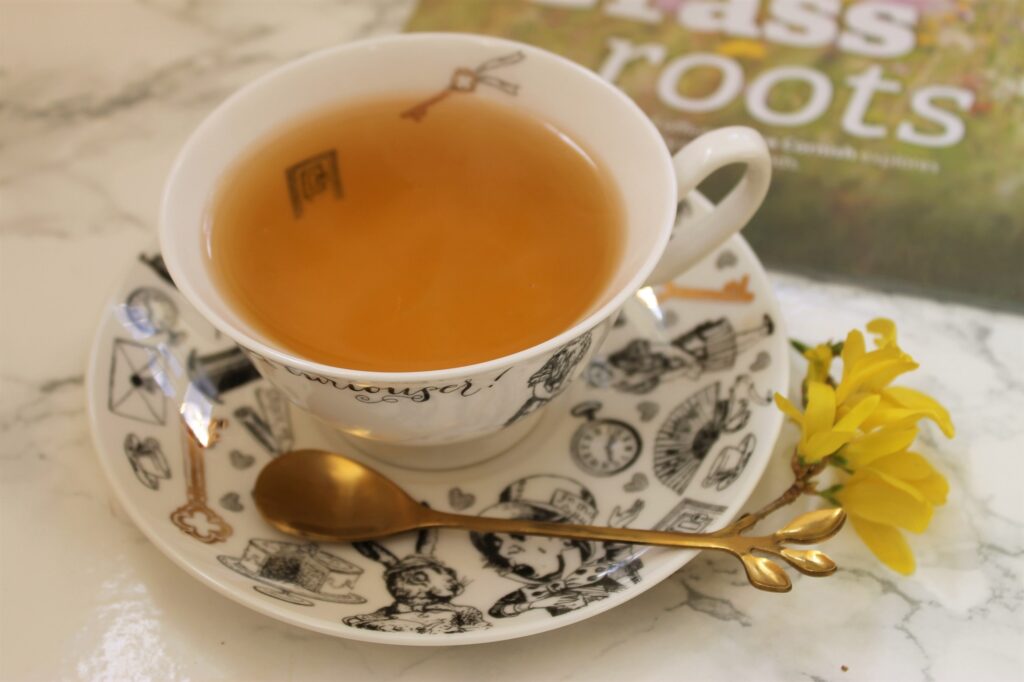If you have ever drank a cup of tea and felt odd after, or even experienced some wild symptoms, then it is possible that you have an allergy to tea. But before you jump down the rabbit hole, let’s slow down and make sure that you really do have an allergy!
Allergies to tea are quite rare. So, first let’s work out:
- Is it something in the water?
- If you are using teabags, have you tried loose leaf tea eliminate the paper/glue?
- If you have added milk or sweetener, have you tried tea without them?
- Are you drinking a specific herbal tea (more likely to have a reaction) or traditional caffeinated tea?
- Do you have an allergy or are you just intolerant?
Just like people with lactose intolerance experience bad side effects after consuming dairy, you could also be intolerant to tea. That’s not the same as an allergy and could be remedied by preparing your tea in a different way, or just selecting a different type of tea to drink.
SUPER IMPORTANT NOTE: If you believe that you have an allergy to tea, DO NOT drink any! Go straight to your doctor and express your concerns. Your physician may do an allergy scratch test, which is a safe way to work out what your body is allergic to. In my article below, I will discuss the different components of tea that could be causing an intolerance or allergy – this is for informational purposes only and is not medical advice. You should ALWAYS consult your doctor before doing anything.
You Can Be Allergic to Tea
An allergy to tea is a specific thing. It means that your body creates an immune response to the tea. If you are simply intolerant, you might experience symptoms such as:
- An upset stomach,
- Sore throat,
- Heartburn, especially if you are reacting to the acidity of the tea,
- Diarrhoea or nausea,
- Bloating and gas,
- General feelings of unwellness.
This is not an immune response, so it isn’t an allergy. But regardless, any adverse effects that you experience after consuming a cup of tea should be a warning sign. Stop drinking the tea and talk to your doctor!
Symptoms of an Allergic Reaction to Tea
When you have an allergy to tea, your immune system will react with symptoms along the same lines of other allergic reactions. For example, peanut butter or strawberries. Tea allergy symptoms include:
- Hives (itchy raised welts),
- Swelling of the lips, tongue, inner mouth and anywhere else the tea has touched,
- Itching, tickling and tingling sensations inside your mouth,
- Anaphylaxis (rash, low pulse, shock symptoms).
As you can tell, this is pretty serious! But it’s not the actual tea that you are having an allergic reaction too – it’s much more likely to be one of the components of tea. Caffeine (a stimulant), theanine (an amino acid), and tannins.


Green Tea Allergy
If you are allergic to green tea, then it is more likely that you are having a reaction to theanine. In green tea, there are typically high levels of l-theanine especially in shade-grown teas, like matcha. Some white teas and lightly oxidised oolong teas can also produce an allergic reaction as they are high in l-theanine too.
If you experience green tea allergy symptoms, seek medical attention! Afterwards, avoid green tea, white tea, and oolong tea. You can try drinking black tea, as it is typically lower in l-theanine, but proceed with caution.
If you can confirm that it’s the l-theanine component that you are allergic to, then you will be fine to consume herbal teas and coffee. L-theanine is a very unique amino acid that is only present in the Camellia sinensis tea plant and a few select mushroom species. There is no l-theanine in coffee or herbal tea.
Black Tea Allergy
Unlike green tea, black tea can have low to moderate levels of l-theanine. However, it can often have higher levels of caffeine plus a lot of tannins. The tannins in tea give it that astringent, satisfying, drying flavour. Other foods and drinks that contain tannins include red wine, dark chocolate, and certain nuts.
So, the real question is are you allergic to caffeine or tannins? Coffee contains chlorogenic acid, which technically can be classed as a tannin. Obviously, it is also high in caffeine. If you are allergic to black tea, it is likely that you will also be allergic to coffee. Surprisingly, dark chocolate also contains both caffeine and tannins so don’t use that to test your hypothesis either.
Wine, however, contains tannins but not caffeine. So, if you experience an allergic reaction to wine, then it will be the tannins that are the cause of your trouble. If wine goes down smoothly, then it’s the caffeine you have a problem with.


Chamomile Tea Allergy
Another rare but still heard-of type of tea allergy is a chamomile allergy. Chamomile is a flower from the Asteraceae family, so if you know you have an allergy to these plants then you should absolutely avoid chamomile.
Chamomile tea allergy symptoms will be the same as other allergic reactions. However, if you feel sleepy or strangely calm after consuming chamomile, this is a symptom of neither an allergy nor an intolerance. In fact, chamomile is a popular herbal remedy that people take to help reduce anxiety and induce sleep.
Learn more about chamomile in my Chamomile Tea Guide.
Other Allergy to Tea Types
White tea, green tea, black tea, oolong tea, yellow tea and puerh are all part of the Camellia sinensis traditional tea family. So, if you are allergic to one you should be wary of all. However, there are also numerous fruit and herbal teas available.
If you know you are allergic to a plant, fruit, or vegetable, then you should carefully check the ingredients of any herbal tea before you drink it. I have seen some unusual ingredients in teas, even catnip, so never jump in blindly no matter how obscure your allergy is.
Besides chamomile, other rare but documented allergies and intolerances include:
- Marigold (chamomile family)
- Chrysanthemum (chamomile family)
- Hibiscus (contains tannins)
- Liquorice (drink in moderation if you have hypertension)
FAQs
Yes! If you are allergic to theanine, you will have reaction from tea but not coffee. However, if you are allergic to caffeine or tannins, both tea and coffee with cause a reaction.
Yes, it is possible to be allergic to components of traditional caffeinated tea as well as herbal teas.
Yes, green tea is high in theanine and may also be high in caffeine – both of these compounds can trigger an allergic reaction, albeit very rarely.
